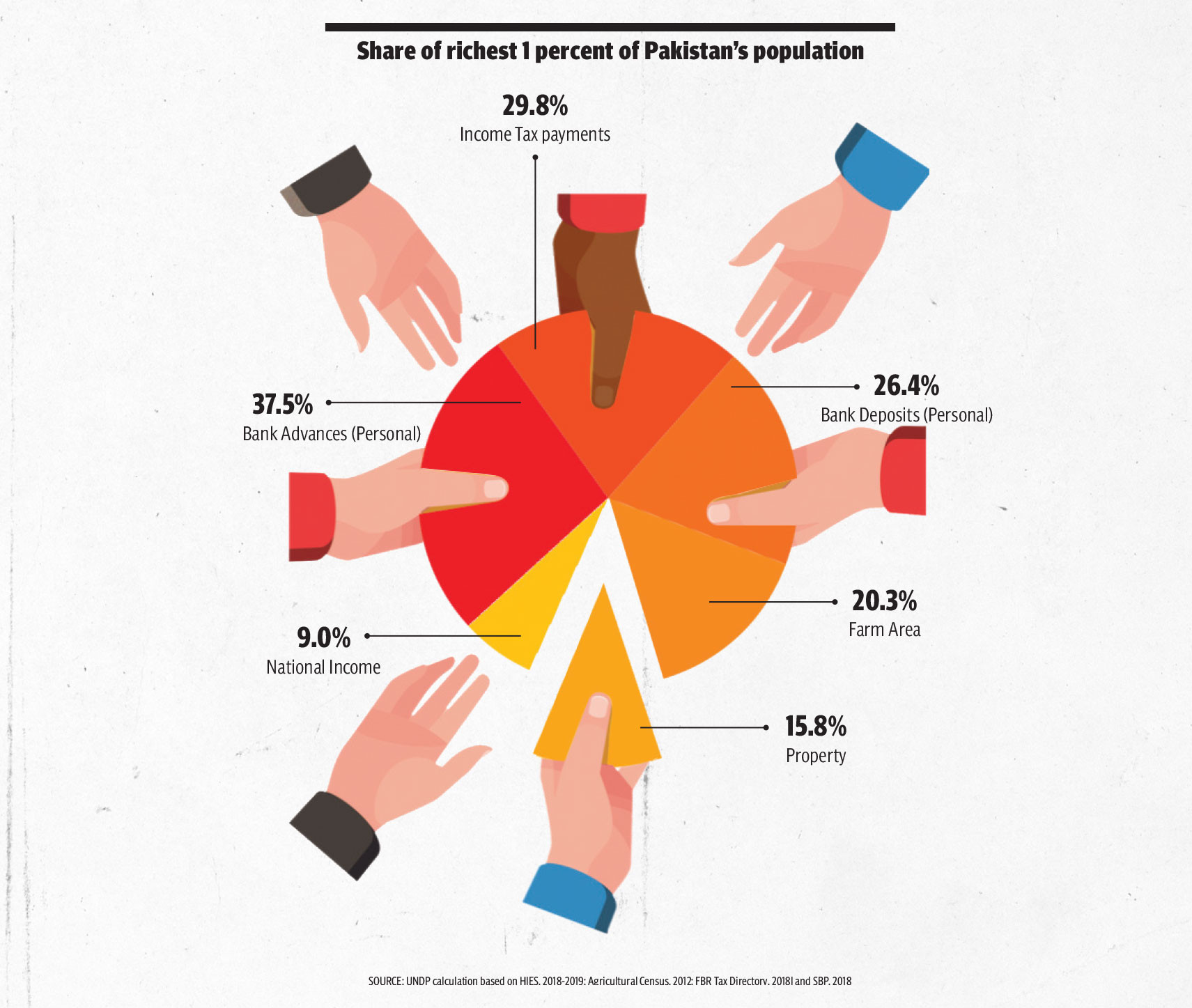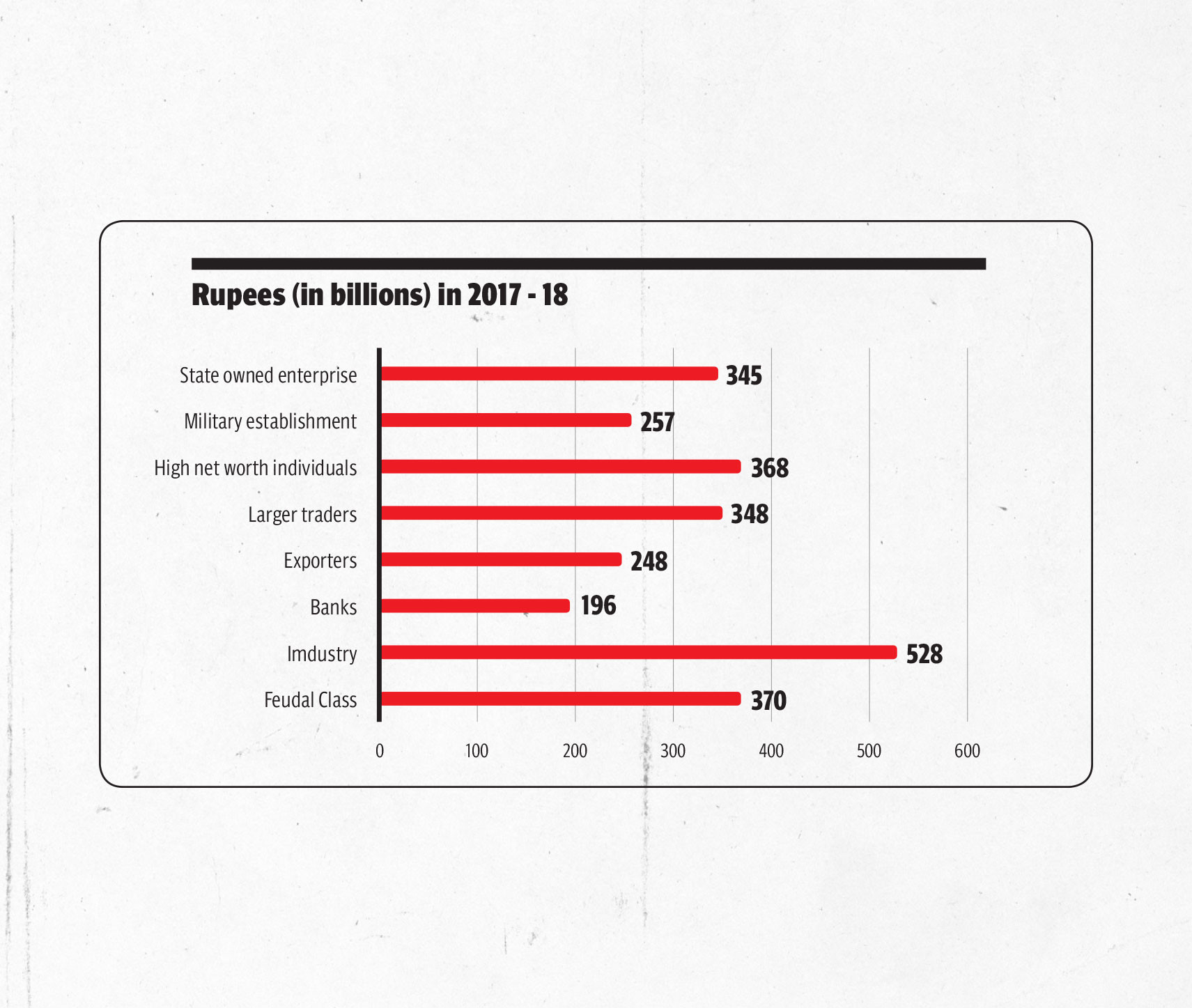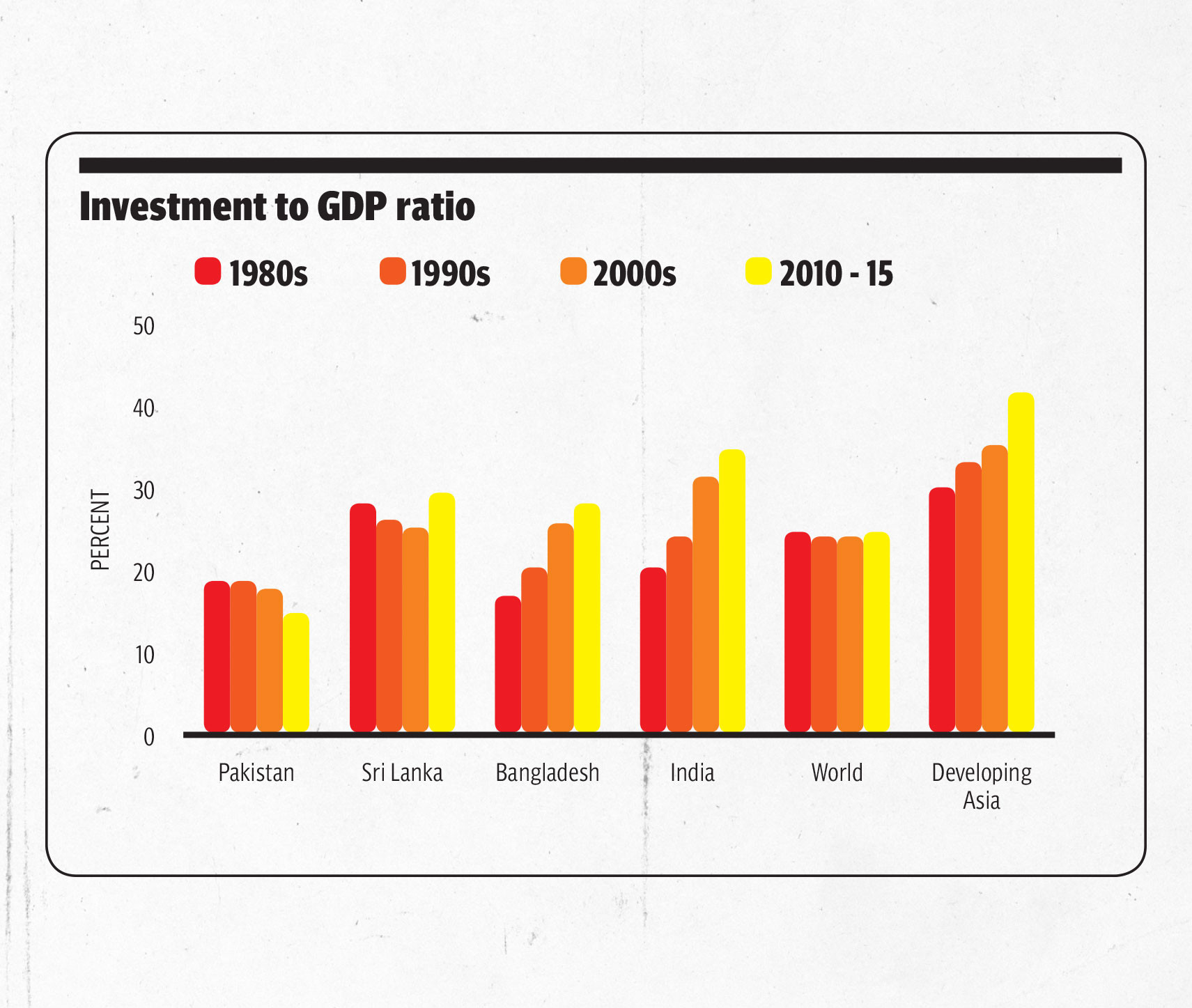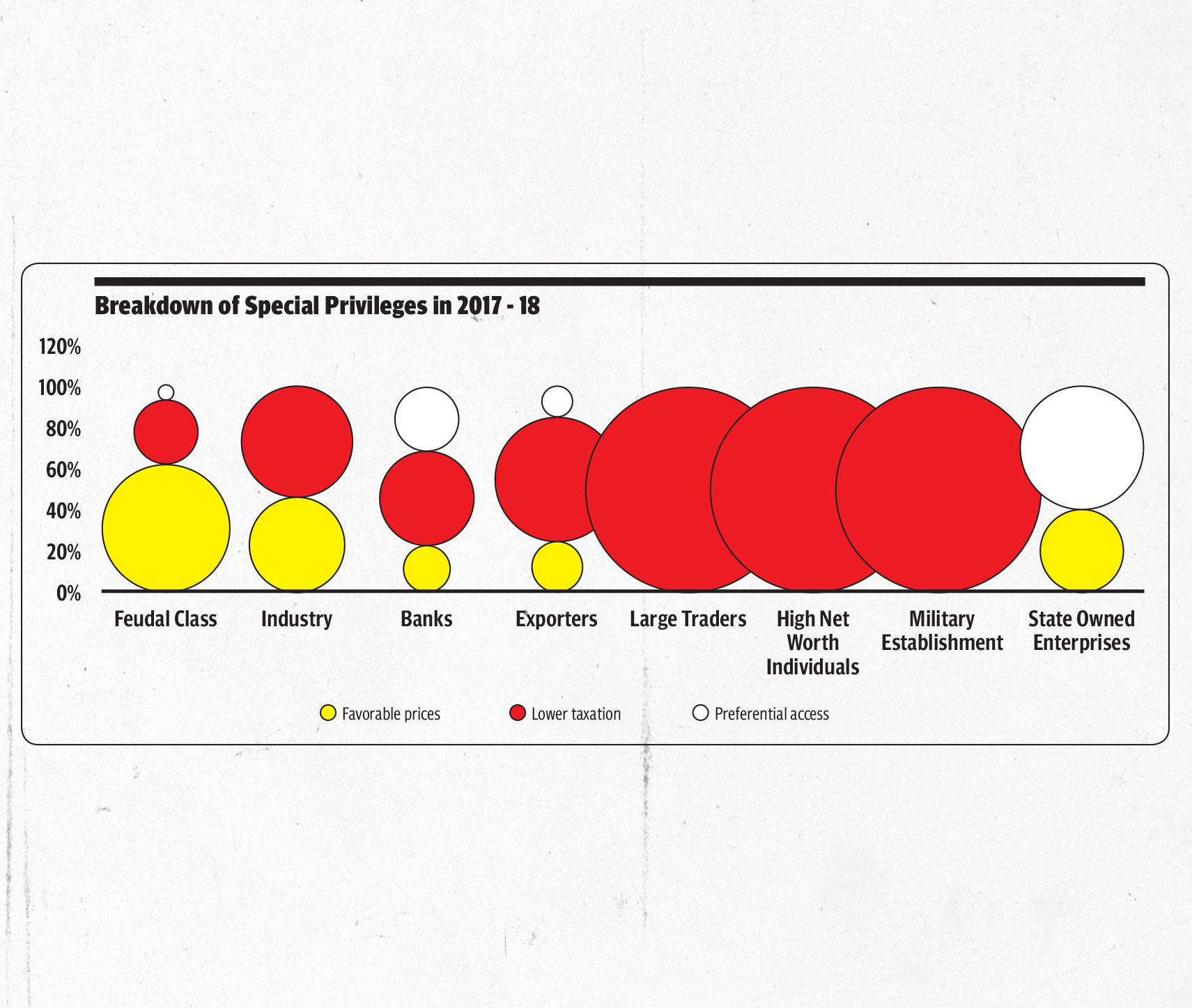Pakistan's Defence Minister Khawaja Asif recently shed light on the existence of over 200 golf courses built on government-owned lands, exclusively for the country's elite. Speaking out on this issue, he pointed out that if these lands were to be reclaimed and auctioned, Pakistan could potentially generate a substantial amount of revenue to repay its foreign debts.
The minister also highlighted the rental amount charged for the set-up created on 1,500 kanals of government land in Lahore for the elite, which stands at a mere Rs 5,000. The revelation of such stark inequality in the use of public resources has sparked concerns about the fairness and transparency of land distribution in Pakistan.
Pakistan's income inequality has been a persistent and growing problem, with the richest 10% of the population accounting for around 40% of the national income, while the poorest 10% only receive about two percent of the national income.
According to the Oxfam Pakistan Inequality report 2020, the top one percent of the population in Pakistan owns 10 times more wealth than the bottom 50%. Social elites, on the other hand, use their influence to ensure that their children have access to better education, health, and employment opportunities, perpetuating intergenerational wealth inequality, according to the 2020 Pakistan National Human Development Report by the United Nations Development Programme (UNDP), titled "The three Ps of inequality: Power, People, and Policy."
Elite capture is a deeply ingrained phenomenon in Pakistan which continues to breed and foster income inequality by restricting economic opportunities for the vast majority, and confining wealth within the clutches of a privileged few, ultimately giving rise to an array of economic challenges. Elite capture in Pakistan refers to the phenomenon where a small group of powerful individuals, typically those belonging to the political, bureaucratic and economic elite, use their positions to benefit themselves at the expense of the general public.
Pakistan's wealthiest individuals, commonly referred to as the "22 families," are synonymous with immense riches and boundless opulence. These families are part of two distinct sets: the original 22 and the 22 families of the present era, the latter including lesser-known factions.The elite include specific individuals such as politicians, entrepreneurs, media, and militant leaders who are part of this elite. The elite club is interconnected and has taken the shape of a large fraternity of common interests.
 The allocation of funds
The allocation of funds
The role of political, economic and social elites in perpetuating income inequality in Pakistan cannot be overstated. Political elites use their power to ensure that policies and laws are in their favour. For example, the agriculture sector, which is dominated by political elites, receives massive subsidies from the government while small farmers and workers in other sectors do not.
According to the Pakistan Economic Survey 2020-21, the government allocated Rs682 billion (around USD 4.3 billion) in subsidies for the agriculture sector, while allocating only Rs70 billion (around USD 440 million) for all other sectors combined. The economic elites control most of the country's resources, including industries and land, which further exacerbates income inequality.
According to the World Inequality Database, the top 10% of Pakistan's population holds 64% of the country's wealth, while the bottom 50% only has access to four percent of the wealth. This severe wealth inequality is largely due to elite capture.
The issue of elite capture is particularly important, where the government and the private sector(s) are historically dominated by powerful elites who have little interest in promoting the interests of the wider population. As a result, the majority of the population has limited economic opportunities, perpetuating poverty and inequality.
 Elite spending
Elite spending
Elite spending in Pakistan is often associated with luxury items and activities such as throwing extravagant parties, membership for golf clubs and exclusive country clubs. For instance, the Islamabad Golf Club, which is considered one of the most prestigious golf clubs in the country, charges an annual membership fee of around Rs. 1.5 million (approximately $9,000).
Similarly, the rich and famous in Pakistan often flaunt high-end designer clothing, expensive jewellery, and luxurious cars as status symbols. Exclusive clubs, such as the Karachi Club and Lahore Gymkhana, cater to the affluent segment of society and offer amenities such as swimming pools, tennis courts, and fine dining restaurants. These activities and items are often out of reach for the average Pakistani and serve as a symbol of the vast economic inequality that exists in the country.
The case of sugar
One notable example of elite capture in Pakistan is the sugar industry, where a small group of politically connected individuals has been accused of manipulating prices, evading taxes, and monopolising the market.
According to a report by the Federal Board of Revenue, the sugar industry received billions of rupees in subsidies and tax exemptions between 2014 and 2018, while at the same time creating artificial shortages to drive up prices and increase profits. This has resulted in a situation where a few sugar mill owners have amassed enormous wealth at the expense of farmers, consumers, and the broader economy.
According to the latest data from the Pakistan Bureau of Statistics, the country's Gini coefficient, a measure of income inequality, is 0.37, which is higher than the regional average for South Asia and the global average. This means that the distribution of income is heavily skewed towards the top, while the majority of the population struggles to make ends meet. This level of income inequality is a serious problem as it limits economic opportunities for the majority of the population, increases poverty and social unrest, and hinders overall economic growth.
Compared to other countries in the region, Pakistan has one of the highest levels of income inequality, with only India having a higher Gini coefficient. The persistence of income inequality in Pakistan can be linked to the issue of elite capture, where a small group of political, economic, and social elites control a disproportionate amount of wealth and resources, perpetuating income inequality for their own benefit.
 Stranglehold on opportunity
Stranglehold on opportunity
Elite capture not only perpetuates income inequality but also limits economic opportunities for the majority in Pakistan. The elites have the power to influence government policies in their favour, which often leads to inadequate investments in essential sectors like education, healthcare, and employment.
For instance, a study by the United Nations Development Programme (UNDP) found that Pakistan has one of the lowest education budgets in the world, with only 2.2% of its GDP allocated to education. This low investment in education has resulted in a poor literacy rate, with over 22 million children out of school, according to the Pakistan Education Statistics Report 2019-20.
Similarly, Pakistan's healthcare system also suffers from inadequate investment, with only 0.9% of its GDP allocated to healthcare, according to the World Bank. As a result, the majority of the population cannot access quality healthcare facilities. Furthermore, the concentration of wealth in the hands of a few elites limits employment opportunities for the masses, as most of the businesses and industries are owned and controlled by the elites. This leads to high unemployment rates and a lack of economic opportunities for the majority of the population.
In Pakistan, there exists a vast disparity in access to basic needs and economic opportunities between the elites and non-elites. Elite capture has ensured that the elites have access to the best facilities for education, healthcare, and employment opportunities, while the non-elites have to make do with whatever they can get.

Living on the edge
According to a recent report by the Pakistan Bureau of Statistics, only 43% of households in rural areas have access to basic healthcare facilities, compared to 70% in urban areas. Moreover, the elites' control over the country's resources has led to an unequal distribution of wealth, with the richest 10% of the population holding 34.8% of the total income, while the poorest 10% hold only 2.2%.
This disparity limits the economic opportunities for the majority, making it difficult for them to escape poverty and create a better life for themselves and their families. The elites' control over basic needs and resources means that they have a disproportionate influence on policymaking, resulting in policies that favor their interests and further entrench income inequality.
Firstly, the government needs to ensure that its policies and practices are equitable and do not disproportionately benefit the elite. This can include implementing progressive taxation policies, increasing public spending on education and healthcare, and providing subsidies and incentives for small and medium-sized enterprises.
Secondly, the government needs to strengthen its regulatory mechanisms to prevent monopolies and cartels from forming, which often result in higher prices and reduced competition. Thirdly, the government needs to improve transparency and accountability in its decision-making processes to prevent corruption and rent-seeking behaviour.
Lastly, civil society and individuals can play an important role in promoting more equitable economic policies and practices by advocating for their rights and holding those in power accountable. By implementing these measures, the government can begin to address the issue of elite capture and income inequality, creating a more equitable and just society for all.
Ali Asad Sabir is a political economist and senior research assistant at the Institute of Development and Economics Alternatives (IDEAS). Abdul Rehman Nawaz is a research assistant at IDEAS. All facts and information are the sole responsibility of the writers.
